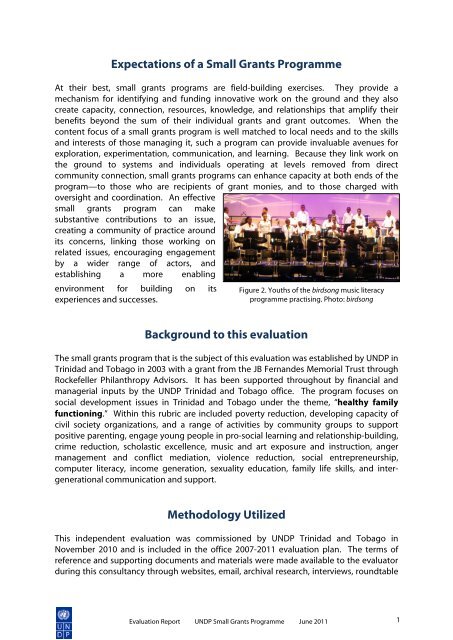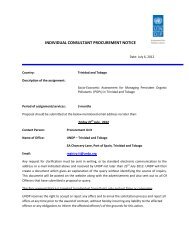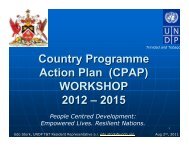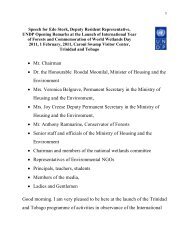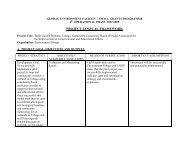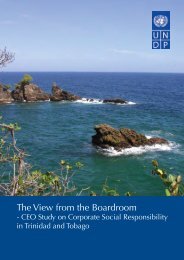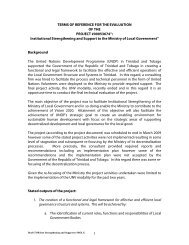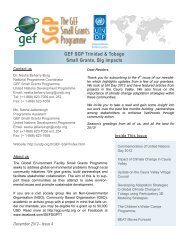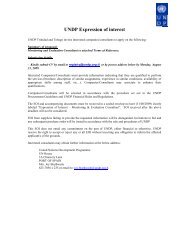UNDP Small Grants Programme Evaluation Report June 2011
UNDP Small Grants Programme Evaluation Report June 2011
UNDP Small Grants Programme Evaluation Report June 2011
Create successful ePaper yourself
Turn your PDF publications into a flip-book with our unique Google optimized e-Paper software.
Expectations of a <strong>Small</strong> <strong>Grants</strong> <strong>Programme</strong>At their best, small grants programs are field-building exercises. They provide amechanism for identifying and funding innovative work on the ground and they alsocreate capacity, connection, resources, knowledge, and relationships that amplify theirbenefits beyond the sum of their individual grants and grant outcomes. When thecontent focus of a small grants program is well matched to local needs and to the skillsand interests of those managing it, such a program can provide invaluable avenues forexploration, experimentation, communication, and learning. Because they link work onthe ground to systems and individuals operating at levels removed from directcommunity connection, small grants programs can enhance capacity at both ends of theprogram—to those who are recipients of grant monies, and to those charged withoversight and coordination. An effectivesmall grants program can makesubstantive contributions to an issue,creating a community of practice aroundits concerns, linking those working onrelated issues, encouraging engagementby a wider range of actors, andestablishing a more enablingenvironment for building on itsexperiences and successes.Figure 2. Youths of the birdsong music literacyprogramme practising. Photo: birdsongBackground to this evaluationThe small grants program that is the subject of this evaluation was established by <strong>UNDP</strong> inTrinidad and Tobago in 2003 with a grant from the JB Fernandes Memorial Trust throughRockefeller Philanthropy Advisors. It has been supported throughout by financial andmanagerial inputs by the <strong>UNDP</strong> Trinidad and Tobago office. The program focuses onsocial development issues in Trinidad and Tobago under the theme, “healthy familyfunctioning.” Within this rubric are included poverty reduction, developing capacity ofcivil society organizations, and a range of activities by community groups to supportpositive parenting, engage young people in pro-social learning and relationship-building,crime reduction, scholastic excellence, music and art exposure and instruction, angermanagement and conflict mediation, violence reduction, social entrepreneurship,computer literacy, income generation, sexuality education, family life skills, and intergenerationalcommunication and support.Methodology UtilizedThis independent evaluation was commissioned by <strong>UNDP</strong> Trinidad and Tobago inNovember 2010 and is included in the office 2007-<strong>2011</strong> evaluation plan. The terms ofreference and supporting documents and materials were made available to the evaluatorduring this consultancy through websites, email, archival research, interviews, roundtable<strong>Evaluation</strong> <strong>Report</strong> <strong>UNDP</strong> <strong>Small</strong> <strong>Grants</strong> <strong>Programme</strong> <strong>June</strong> <strong>2011</strong>1


